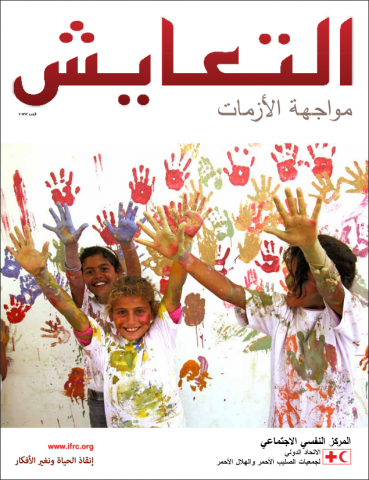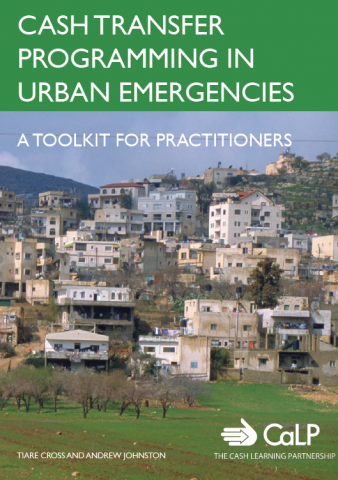Cash transfer programming in urban emergencies: A toolkit for practitioners


In recognition of the increasing urban populations around the world and their increasing vulnerability to disasters, the Cash Learning Partnership (CaLP) endeavoured to investigate the current status and impact of urban emergency response programmes that utilise cash transfer programming. This study aimed to better understand the collective preparedness for future urban emergency responses, and identify concrete best practices and tools to help organisations better implement cash and voucher programmes in challenging urban environments. The following toolkit brings together the collective knowledge of best practices, key issues in programming, and adaptations of cash transfer programme methodologies for urban settings.
The flow of the toolkit follows the logical order of a project cycle and contains both guidance and examples of tools. The authors aims to provide users of this toolkit with generic tools and guidance that can be quickly adapted for different urban settings. The toolksit also promotes a variety of options for implementation that reflect the multisectoral and multi-disciplinary nature of cash transfer programmes.
© The Cash Learning Partnership (CaLP) 2011
